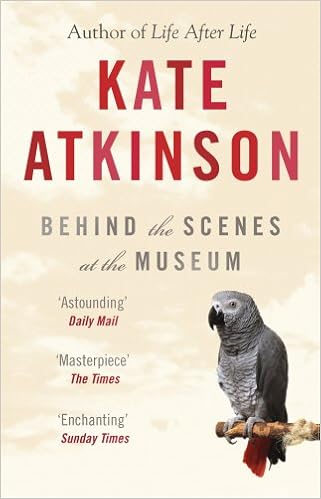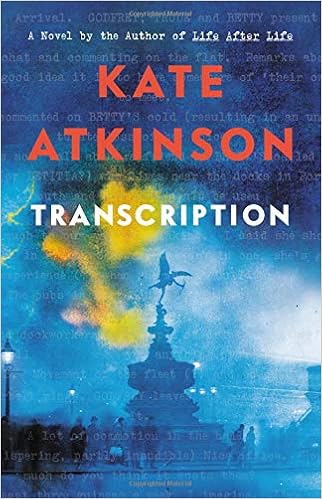Schrödinger, whoever he was, and his cat, and anyone else that felt like it, had all climbed inside Pandora's box and were dining on a can of worms. Jackson felt the beginnings of a headache, another one, on top of the one he already had. (p.144)
Another twisty, witty, knotted plot from Kate Atkinson (whose work I've read and enjoyed before). I don't want to dive into details of the plot, not least because it would ... well, it'd take a novel to explain and explore, and Atkinson has already written it.
Jackson Brodie, familiar from Atkinson's other novels, is on the trail of the biological parents of Hope McMaster. (Her name is probably not coincidence: Jackson and Julia discuss Pandora's box more than once, and as another character points out, a coincidence is just an explanation waiting to happen (p. 293). That's a useful mantra to keep in mind whilst reading Started Early, Took My Dog. The novel is strewn with apparent coincidences, minor intersections, that make or break lives: a lost USB stick, a birthmark shaped like Africa, a half-finished sentence.
Jackson, on impulse, acquires a dog: ex-DI Tracy Waterhouse acquires, in comparable circumstances, a child. One is slightly more trouble than the other. One attracts the attention of Tilly, a once-successful actress who's falling prey to senility. One attracts the attention of Brian Jackson, who's investigating a client's background and could do with some more context. And everything seems to come back to the murder of a prostitute in 1975, and the discovery three weeks later of her corpse and her filthy, starving child.
For a novel about murder, abuse, senility, abduction and deception, this is a remarkably cheerful read. Atkinson has a lovely wry sense of humour (not least in Jackson's blithe acceptance of his flaws) and while there's plenty of desperation herein, there's also a strong sense of hope -- not only for the children (and dogs) who are rescued, but for those who aren't, for those individuals who 'live their lives against all the odds.'
There are a few loose ends, which may or may not be picked up in future novels (who was Kitty Winfield's famous ex?), and some connections that are never made explicit (who killed the woman whose corpse Tracy finds?) but resolution's achieved, happy endings abound, and hope is fulfilled.







